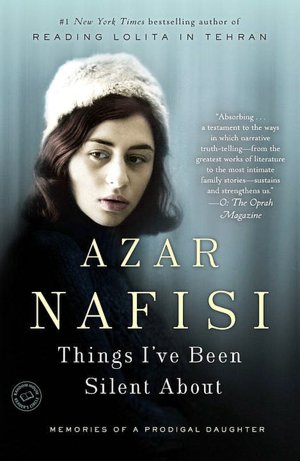
When one loves an Azar, how can one ignore a book written by
an Azar? That’s the dilemma I
found myself embroiled in, within my head. This book-by-Azar remained on my book group bookshelf,
unread, for months. It would jump
out at me as I skimmed the shelf, yet I passed it by, over and over again. It was both enticing and distasteful as
it stared back at me.
It’s interesting about that bookshelf. Here are the books I’ve toted home from
book group, lined up on the shelf, waiting to be read.
Some have sat there for an embarrassingly long time. Books that sounded
enticing, worthwhile, interesting, exciting, or important for one reason or
another. But, when the time came
to select one, were passed by.
Things I’ve Been Silent About by Azar Nafisi sat and sat
and sat on that shelf. How many months ago did I bring it home? I didn’t read it, but I couldn’t part with it. Azar, Azar, Azar stared at me. I had to read it and when I finally did
I greatly enjoyed it. Thanks Betty
Azar and thanks Azar Nafisi.
Much of my resistance to reading Things I’ve Been Silent
About was that it was about Iran, a country both fascinating and distasteful to
me. I didn’t want to read about ugly political turmoil, the suffering
of people, or the control of women’s freedoms. But that wasn’t what the book was about, although there was
that too.
Instead it was about an exceptional woman, marriage, and a
mother-father-daughter struggle.
It is an intimate look at Nafisi's family, the secrets she kept, and the
price of political upheaval to a family.
One word I came across in the description of the book was dissection,
and that fits. Nafisi dissected
her childhood experiences and relationships as she told her story.
Azar Nafisi is a good story teller, and the story, although
difficult, was not depressing.
Another admirable woman and another wonderful memoir.




